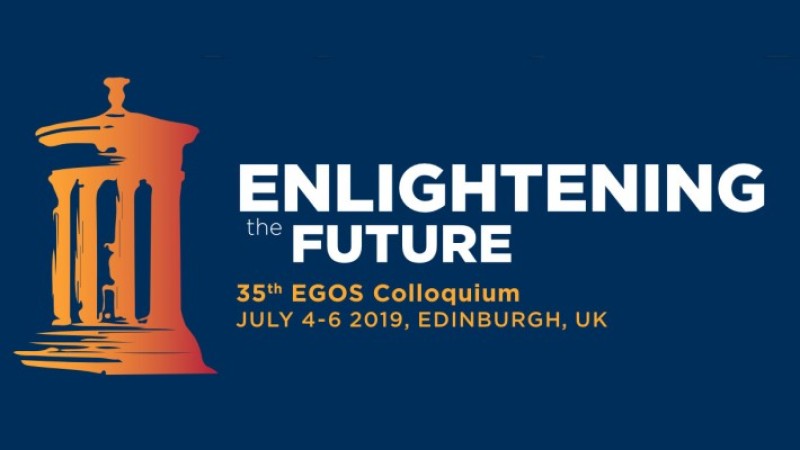Sub-theme 39: The Resurgence of Craft Work: Meanings, Methodological Challenges and Philosophies ---> CANCELLED
Call for Papers
Over the past decade, we have witnessed resurgent popularity of craft and craft work as an antidote to the dominant dynamics
of mechanised industrial production and mass consumerism (Crawford, 2009; Bell et al., 2018). Craft work discourses have historically
been associated with a questioning of industrial capitalism during periods of rapid change. The notion of craft implies that
the aspiration to do a job well is an enduring feature of the human condition (Sennett, 2008).
This sub-theme
seeks to explore the multiple, and contested meanings of contemporary craft and craft work and to foster reflections on the
conceptual, methodological and empirical possibilities offered by craft research. We outline three avenues for research, inviting
contributions that potentially touch one or more of these aspects.
Contested meanings in contemporary craft
In recent years, there has been an explosion of interest on craft (Luckman, 2015). The term has been used in
diverse sectors to market a wide variety of artisanal and handmade products. This resurgent popularity of craft enables us
to reflect on the multiplicity of meanings attributed to the concept and problematize about the type of knowledge produced
around new and traditional definitions. Traditionally craft is commonly understood to involve ‘virtuoso’ skill’ (Becker, 1979)
which results from experience achieved through practice. This enables the use of raw materials and techniques to make things
by hand which are in contrast to automated processes of production.
The label of craft often relies on distancing and
differentiating crafted products from mass-manufactured, globalized, mechanised processes of industrial production. We have
witnessed the rise of craft as a term that is used to market a wide range of products and services and the idea of craft is
articulated by multinational corporations in relation to global luxury brands, long established family-owned organizations,
and by independent makers. Whether or not this is craft work is debateable highlights the contested meanings that surround
craft work.
We thus invite contributions that address questions such as:
What opportunities are enabled by craft work, e.g. for sustainability, more meaningful work, or economic and social revival in post-industrial economies?
How is craft work changing? What tensions are involved in modern making, e.g. between craft and technology?
How do employees experience craft work? How are craft skills learned and how is craft knowledge shared? In what ways does craft work reconfigure the organization of working spaces and places (e.g. coworking spaces, FabLab)? And what are the implications for workers/makers’ identities within these contexts?
Can we speak of ‘authentic’ craft? Or is craft a marketing tool to sell more stuff?
What role does craft work play in creating a successful brand/organizational identity?
Methodological challenges in researching craft
Research on craft can promote reflection on important issues surrounding the process
of research and the methodological challenges associated to this. For example, the physical and embodied nature of craft work
poses methodological challenge on how to surface aspects of the environment, interactions, tacit and embodied knowledge. Embodied
knowledge are important resources in craft making that can be difficult to articulate through discursive modes (Toraldo et
al., 2018). Such knowledge informs craft makers’ capabilities and skills and contributes to defining their work identities,
including through the artifacts they produce.
We thus invite contributions that address the following questions:
How do multimodal research strategies, involving the visual, video and other modalities interact with and complement discursive practices in the study of craft work?
How can visual research and methods deepen our understanding of the sensory, embodied and affective qualities of craft work and organizations?
In what ways can material artifacts such as objects that craft workers create, be used by researchers who are interested in craft work?
Philosophies of craft and material practices of making
Craft work also draws attention to the philosophical assumptions that inform
embodied relationships between people and objects in situations of organized making. Heidegger (1977) characterises this as
a process of ‘handcraft’ - fashioning materials in ways which bring forth and reveal the materials from which an object is
made. Through recent contributions of new materialist thinkers (cf. Bennett, 2010), craft enables a focus on the inter-embodied,
intra-active and entangled nature of organizational relations between humans and non-human things.
We encourage contributions
that explore the philosophical possibilities enabled by the craft revival, including:
How does craft work shape bodies and objects? What organizational implications arise from taking the proximity between bodies and objects seriously as relationships that ‘matter’?
How is craft experienced phenomenologically in organizations, including as a source of feeling, and what implications arise from this?
What ethical possibilities are enabled by craft as a mode of organizing that is based on sensory, embodied engagement with the world?
References
- Becker, H.S. (1979): “Arts and crafts.” American Journal of Sociology, 83 (4), 862–889.
- Bell, E., Mangia, G., Scott, T., & Toraldo, M.L. (2018): The Organization of Craft Work: Identities, Meanings and Materiality. London: Routledge.
- Bennett, J. (2010): Vibrant Matter. Durham, NC: Duke University Press.
- Crawford, M.B. (2009): Shop Class as Soulcraft: An Inquiry into the Value of Work. New York: Penguin.
- Heidegger, M. (1977): The Question Concerning Technology and Other Writings. New York: Harper & Row.
- Luckman, S. (2015): Craft and the Creative Economy. New York: Palgrave Macmillan.
- Sennett, R. (2008): The Craftsman. London: Penguin.
- Toraldo, M.L., Islam, G., & Mangia, G. (2018): “Modes of Knowing. Video Research and the Problem of Elusive Knowledges.” Organizational Research Methods, 21 (2), 438–465.


